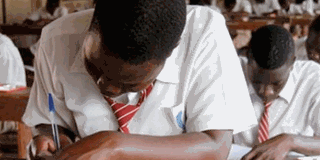Govt to review A-Level curriculum

The existing curriculum has been in use since pre-colonial era. PHOTO/FILE
What you need to know:
- The system that was started in 1918 has been taught for the last 100 years and no longer addresses our social and economic needs.
The National Curriculum Development Centre (NCDC) has started a process to overhaul the higher secondary school curriculum and create one that aligns with the new lower secondary curriculum.
In an interview with this newspaper, Mr Mathias Mulumba, a curriculum specialist at the NCDC, said the process is in its early stages to see higher education made more practical and attractive.
“Last week, we started discussing changes to the A-Level curriculum. We need to revisit what we are doing at A-Level so the discussion has started going on at NCDC,” Mr Mulumba said.
They are now awaiting a go-ahead from the Ministry of Education and Sports. Mr Mulumba said the review was necessitated by the introduction of a new lower secondary school curriculum, which changed the stance from cognitive to competence-based learning and assessment.
According to the NCDC, students transiting from the new lower secondary school curriculum cannot join higher education under the current curriculum.
The body, which works under the Education ministry, is mandated to develop educational curricula for primary and secondary institutions.
The current higher school education curriculum takes a period of two academic years to complete. The curriculum is offered as a set of specialised subject combinations. A learner offers a combination of three Principal subjects and two Subsidiary subjects.
It leads to the award of the Uganda Advanced Certificate of Education and determines a learner’s career path at the university level.
Mr Mulumba said the process will start with a countrywide consultation which will inform the contents of the new curriculum.
“The research department is going to do a needs assessment and this will inform us what the market wants in A-Level. We have already made a proposal to the line ministry and we are waiting for money to go and survey the country and get the views of the stakeholders,” Mr Mulumba said.
“We will interview more than 3,000 people across the country, including university institutions on what can change,” he added.
The review follows numerous reports that have urged government to vocationalise secondary education. Experts have argued that the current curriculum is filled with a lot of outdated information that is not applicable to today’s work demands.
“The main problems is the existing education system. The system that was started in 1918 has been taught for the last 100 years and no longer addresses our social and economic needs,” Mr Mulumba said.




